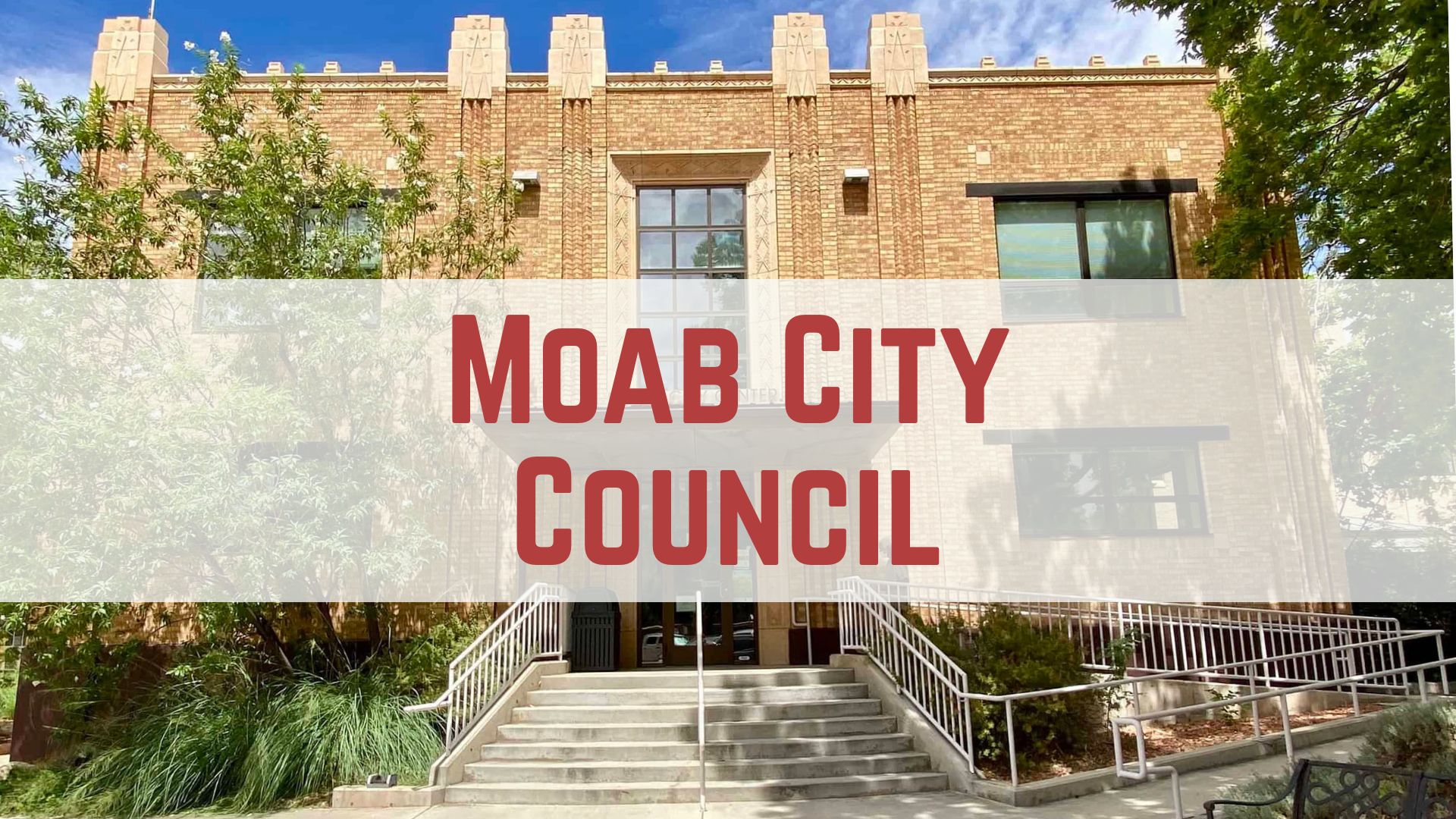Some information may be outdated.
On Feb. 14, the Utah State House Committee on Revenue and Taxation considered Representative Phil Lyman’s House Bill 416, which aims to repeal a clause in state code allowing for transient room taxes to be spent on “economic diversification activities.”
The committee voted to send the bill forward with a favorable recommendation. HB 416 would not reduce the amount of TRT Grand County collects or reduce the portion that can be spent on mitigation of tourism impacts; instead, it aims to bring an early end to an initiative meant to help the county diversify its tourism-dominated economy.
Transient room tax reforms
Transient room tax is collected on short-term lodging and contributes a substantial amount to Grand County’s budget. In the Feb. 14 hearing, Grand County Strategic Director Chris Baird told the committee that total TRT revenues amount to about $8.3 million a year; the portion earmarked for economic diversification, the clause in question, equates to about $1 million a year.
There are specific regulations on how TRT money can be spent, with some allocated to tourism establishment and promotion, and some allocated to mitigation of tourism impacts.
In 2021, House Bill 247 reformed those regulations through two main parts. First, the changes allowed Grand County to spend a greater proportion of TRT revenues on tourism mitigation than the previous regulations had allowed. Before 2021, it was required that 47% be allocated to tourism promotion, with 53% earmarked for mitigation. Now TRT revenue is split with 37% for promotion and 63% for mitigation. That split is not affected by HB 416.
The other main reform allowed for up to a third of the promotional side of TRT spending to be used for “economic diversification activity.” Grand County officials have long pursued economic diversification as a strategy to improve the area’s economic stability and resiliency. The bill defines “economic diversification activity” as “an economic development activity that is reasonably similar to, supplements, or expands any economic program as administered by the state or the Governor’s Office of Economic Development.”
STAR grant
State code also puts a limit on how much TRT money the county can hold in a reserve fund—the amount in the fund may not exceed 50% of the total TRT revenue for the current fiscal year. The economic diversification clause also had a five-year sunset date.
“The five-year sunset clause and reserve accumulation maximums in TRT statute meant we had to start somewhere very quickly in 2022,” August Granath, director of the Grand County Economic Development Department, explained to the committee on Feb. 14. “We decided to focus on the expansion of our local businesses by providing them with resources to grow to create jobs from within the community.”
The county provided those resources through the creation of the “Sustainable and Resilient Business,” or STAR, grant program. Over $1 million in TRT revenues was distributed to local businesses (including this reporter’s small business, which received $1,500). County staff modeled the program after similar grant programs run by the state. (More information on the grants can be found at grandcountyutah.net/1155/Local-Business-Grants.)
Repealing the economic diversification clause
In introducing HB 416, Lyman told the committee that tourism industry stakeholders had participated in the discussion and crafting of the economic diversification clause; now, Lyman said, those businesses were asking “to hit the pause button and refine this economic diversification method.”
Local stakeholders spoke both in favor of and in opposition to the bill. Some questioned the integrity and effectiveness of the STAR grant program. Lori McFarland, who owns High Point Hummer in Moab, attended the committee hearing in person to voice her support of HB 416 and her qualms with the STAR grant.
“I believe there were well-intended hopes for economic diversification,” McFarland said of the creation of the clause. “But the program money is not being used as it was intended. Grand County didn’t have a clear plan. So a makeshift economic development plan turned into awarding grants and choosing who will be the winners, and who will be the losers.”
McFarland pointed out that some of the grants were awarded to nonprofits, which don’t, she argued, bring economic diversity, and don’t pay taxes. Other awardees, she said, are businesses that have a tourism “overlap,” and thus don’t advance diversification away from tourism. These include bike shops and overnight lodging establishments.
Grand County Commission Chair Jacques Hadler, who also owns two tourism-based businesses in the county and served on the evaluation committee for the STAR grant, was at the hearing as well. Committee members questioned him about these awards, and he explained that some grants were awarded to businesses for the construction of employee housing, an urgent need in the county.
Former Moab Mayor Emily Niehaus called in virtually to ask representatives not to send the bill out of committee. Niehaus now runs a private high school and operates a bed and breakfast in Moab; she collects TRT on guest stays at the bed and breakfast. She told representatives that she paid $61,264.14 in state taxes last year.
“I am uniquely interested and invested in how these dollars are spent,” Niehaus said. “The issue that I face with running a B&B is not whether or not people are coming to Moab … The issue is whether or not I can find employees with stable housing, employees that are able to find childcare, good educational opportunities for those that are underserved by the public school, and then also the health care provided to the members of my community—because a sick employee can be a loss of revenue for businesses.”
Niehaus’s school, called the Heron School, was awarded $70,000 through the STAR grant program.
Grand County resident and business owner Michael Liss opposed the idea of a grant program at all.
“I don’t believe in companies getting free handouts, free money,” Liss told the committee. “The only question you need to ask yourself this morning is, ‘do we want to fund Moab as a corporate welfare state?’”
Tourism industry representatives also commented. Jordan Garn of the Utah Hotel and Lodging Association said his organization recognizes the importance of economic diversification, but doesn’t believe that TRT is the appropriate funding source to achieve it. Natalie Randall of the Utah Tourism Industry Association said her organization also supports HB 416. TRT was created with support from the tourism industry with the intention of using those funds to reinvest in that industry, not for other purposes, she said.
Importance of economic diversification
Though there’s disagreement about the STAR grant program and the economic diversification clause of HB 247, participants in the committee hearing seemed to generally support the concept of economic diversification. Grand County leaders in particular stressed the need to bring variety to the local economy.
“Tourism has been very good to me and my family,” Hadler said. “But Grand County is in a position where all of its eggs are in one economic basket, and we are suffering for it. Housing is outrageous. Many workers are stuck in a seasonal cycle. And the pandemic showed us that if visitors aren’t coming, we’re going to be in trouble.”
Grand County Commissioner Mary McGann recalled the economic slump that pervaded Moab in the 1980s, characterized by abandoned homes, shuttered businesses, and a shortened school week necessitated by funding shortages.
“It was because all of our eggs were in one basket,” McGann said, meaning the economy was entirely dependent on the uranium industry, which went bust. Today the community finds itself in a similar situation, she said: “All of our eggs are in one basket in tourism.”
Elaine Gizler, former director of the Moab Area Travel Council and Economic Development, spoke alongside Lyman at the hearing. She supports HB 416, but she also agreed that diversification is critical, saying,
“I do believe that the rural counties definitely have to have economic diversification and cannot continue to rely solely on the back of tourism. But… I do agree with Representative Lyman that the code has to have more clarification.”
Future plans
County officials said they don’t plan to continue with the STAR grant program; that was just the quickest way to “get the ball rolling.”
“We couldn’t hold the money while we were arranging more sophisticated economic development programming,” Baird said. “We had to spend it.”
If the clause’s original sunset date of 2026 is allowed to stand, the county plans to in the future put diversification money toward a revolving low- or no-interest loan fund for local businesses. The county has also been making plans to establish a small business development center in partnership with Utah State University—those plans depend on the availability of economic diversification funds, Baird said. Other USU small business development centers offer services such as free one-on-one business consulting and workshops for current and prospective business owners.
“There seems to be a lot of concurrence that diversification is a good thing, especially for rural counties and resort communities,” Baird said. He proposed a compromise in which the sunset date of the economic diversification clause be moved to the end of 2024, allowing the county to follow through on its partnerships with USU and with the Southeastern Utah Association of Local Governments on establishing a revolving loan fund. That would still be shorter than the original five-year time period, but give a longer window than the date of July 2023 currently in the bill.
In the hearing, Lyman said it seems likely that money from the tourism impact mitigation category could be used to fund the business development center, if the economic diversification clause is repealed.
McGann also asked committee members to oppose HB 416 to allow the county more time to design other programs.
“As everyone knows, when you start anything—a career, a business—you don’t just jump in and have everything work smoothly and correctly… So we began by having our grant program, which I’m very proud of, and we are working very hard with other community members to create a diverse economy. So I’m asking you, please, don’t pull the rug out from underneath us. Give us time to create this program. Give us time.”
The committee voted 6-3 to send the bill out of committee with a favorable recommendation, with representatives Joel Briscoe, Marsha Judkins, and Doug Owens in opposition. Owens explained his ‘no’ vote:
“It seems to me the gist of the idea of diversifying the economy is a really good one—and that maybe some more time is needed for Grand County and every other county to be able to use those funds and see where we get.”
Appreciate the coverage? Help keep local news alive.
Chip in to support the Moab Sun News.





